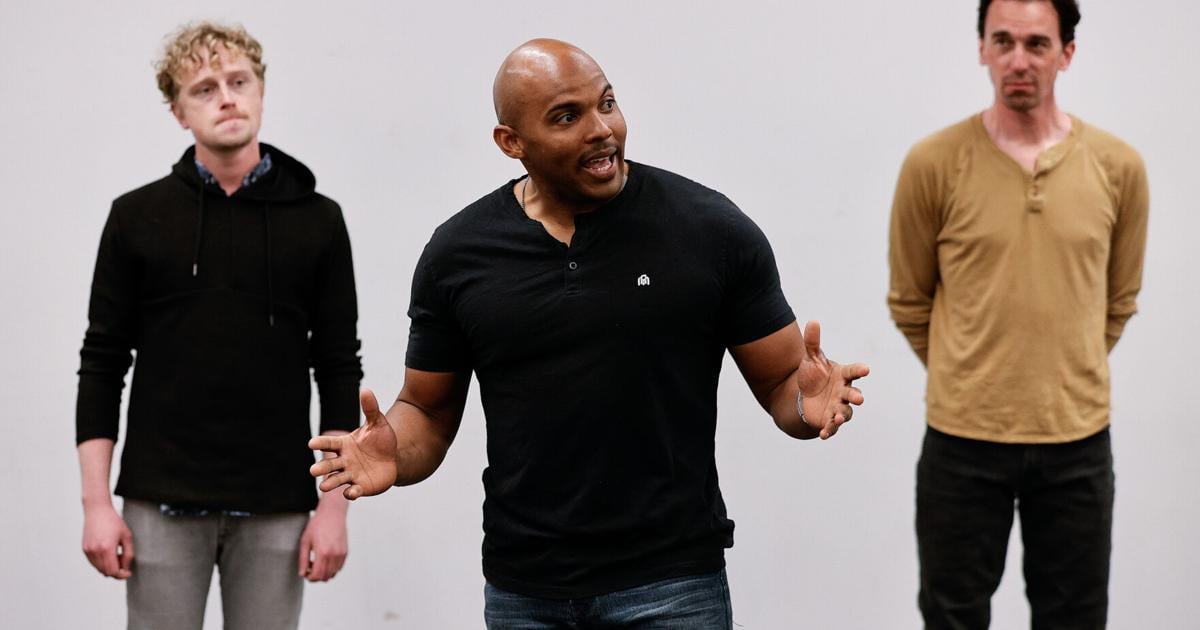Welcome to William Shakespeare done Civil War-style.
The new Theatreworks production of the classic 1603 tragedy “Othello,” traditionally set during the wars between Venice and Turkey in the second half of the 16th century, will instead take place circa the 1860s, during the Civil War.
“It makes it less removed,” said Lavour Addison, who stars as Othello. “When I think of ‘Othello,’ it’s overseas somewhere, but having it in America, rooted where it is, makes it more poignant and more real.”
The show opens Thursday and runs through May 19 at Ent Center for the Arts.
Flipping a play on its head isn’t unusual for Chicago-based director Mikael Burke, who’s making his Theatreworks debut. Prior to “Othello,” he directed an abridged version of Shakespeare’s “Romeo and Juliet” set in the 1980s that riffed on the films of John Hughes, known for “Sixteen Candles,” “The Breakfast Club” and others.
“There’s something I find fascinating about plopping him (Shakespeare) into worlds we know and seeing what we discover,” Burke said.

Michael Lee stars in the upcoming Theatreworks production of “Othello.”
In “Othello,” the titular character is a Black general who has recently married Desdemona. He appoints Cassio and not Iago as his chief lieutenant, which doesn’t sit well with Iago, to put it lightly. The play’s villain plots Othello’s downfall by manipulating him into believing his new bride and new captain are having a sizzling affair, thus stoking the fire of raging jealousy in the general.
“The things we share would be he is passionate, romantic, a lover,” Addison said about his character. “He will not ask someone to do something he himself will not do. He’s not a hypocrite, but also to quote him he is someone who loved not wisely, but too well.”
For Burke, approaching the play meant trying to answer the question of why we are still so invested in this ancient work after all this time. What makes it still relative, present and unresolved?
For him, it largely came down to two reasons.
“What is this play saying to us about masculinity and the relationship between the fragility of men and men’s hearts,” Burke said, “with the violence they perpetrate against the rest of us and how we’re all often victims of disgruntled maleness.”
And the second is race and racism and how they factor into the story.
“I’ve always had a complicated relationship with the play because my contemporary brain wants the play to deal with its racism and call it out and call it into question,” he said, “but the play doesn’t do that.”
Setting it during the Civil War helped him untangle the story in a different way, though Shakespeare’s words haven’t been changed.
“It’s exploring the story within the context of the Confederate Army, a world built upon racism and fueled by racism,” Burke said. “It’s not a play about racism as much as racism as a feature.”
And the non-flagging interest in the work also comes down to the emotions we all share in common, though hopefully we don’t get carried away by them in the same way of Iago and Othello.
“It’s a cautionary tale. This is a play that is largely about very human, very flawed people succumbing to those very human things that make being alive difficult,” Burke said. “Every one of us every day is in a fight with temptation, of giving into baseness, of refusing to move through the world with grace and possibility. This play is the prime example of what we stand to lose if we’re not careful with where we hold our hearts.”











